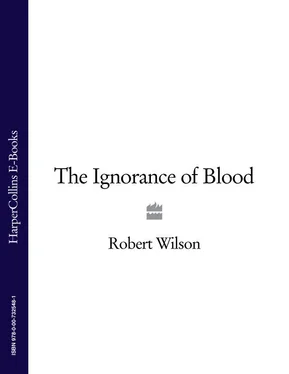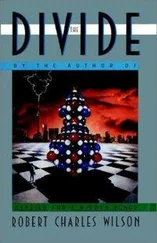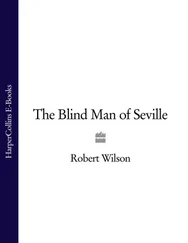Fear sliced through his innards but the alcohol in his veins only gave him the presence of mind to grip the steering wheel, which had powers of its own. El Camarón started up again just before Pepe's truck smashed into the barrier of the central reservation. Only with that abrupt halt did he realize the full extent of his forward momentum as he was catapulted through windscreen glass into the warm night air. Over the agonized voice of El Camarón he heard a noise that was the last thing his befuddled brain managed to compute. Steel rods, now loose, taking off like a battery of launched spears into a tunnel of approaching light.
And the reason Vasili was crying was that he'd just undergone that extraordinary human facility for compressing a life into a compact emotional experience. Seven times in six years of service in Afghanistan Alexei had protected his back. And now, having survived all those years fighting the Pashtoons, Alexei was going to get shot in the back of the head by one of his own in a forest on the Costa del Sol, for no other reason than that he was Vasili Lukyanov's best fucking friend.
‘Tell Leonid –’ he started, and stopped when he sensed something flashing towards him, a strange agitation in the air. ‘What the fuck …?’
The steel rods, their tail ends quivering with expectation, entered the cone of light, as if attracted to him at its apex.
They hit with explosive force.
Tyres smeared their rubber on to the dark road, thumped against an unseen obstruction and the Range Rover took off into the abysmal black of the fields beyond. There was a momentary silence.
‘Vasya?’
Falcón's house, Calle Bailén, Seville – Friday, 15th September 2006, 03.00 hrs
The phone trembled under the warm breath of the brutal night.
‘Diga,’ said Falcón, who was sitting up in bed with a file from one of the hundreds concerning the 6th June Seville bombing resting on his knees.
‘You're awake, Javier,’ said his boss, Comisario Elvira.
‘I do my best thinking at this time in the morning,’ said Falcón.
‘I thought most people our age just worried about debt and death.’
‘I have no debts … not financial ones anyway.’
‘Somebody has just woken me up to talk about death … about a death,’ said Elvira.
‘And why were you called, rather than me?’
‘At some time before eleven thirty-five, which was when it was reported, there was a car accident at kilometre thirty-eight on the northbound motorway from Jerez to Seville. In fact, on both sides of the motorway, but the deaths have occurred on the northbound side. I'm told it's very nasty and I need you to go out there.’
‘Something that the Guardia Civil can't handle?’ said Falcón, glancing at his clock. ‘They've taken their time.’
‘It's complicated. They originally thought there was just one vehicle, a truck, which had crashed into the central reservation barriers and shed its load. It took them a while to realize there was another vehicle, beyond some pine trees down a bank on the other side of the motorway.’
‘Still no reason to involve the Homicide squad.’
‘The driver of the northbound vehicle has been identified as Vasili Lukyanov, a Russian national. When they finally got round to looking in the boot of his car they discovered a suitcase had split open and there was a lot of money … I mean a hell of a lot of money. I understand we're talking about millions of euros, Javier. So, I want a full forensic examination of the vehicle and, although it's clearly an accident, I want you to investigate it as if it was a murder. There could be implications for other investigations going on around the country. And, most important, I want that money fully accounted for and made safe. I'll get a security van sent up there as soon as I can raise someone.’
‘I assume we're talking about a Russian mafia gang member,’ said Falcón.
‘We are. I've already spoken to the Organized Crime Intelligence Centre. They've confirmed it. Area of expertise – prostitution. Area of operation – Costa del Sol. And I've contacted Inspector Jefe Casado – you remember him? The guy from the GRECO, the Organized Crime Response Squad in the Costa del Sol.’
‘The one who gave us a presentation back in July about setting up a GRECO in Seville to handle the mafia activity here,’ said Falcón. ‘And nothing's happened.’
‘There's been a delay.’
‘Why can't he handle this?’
‘That's the delay, he's in Marbella running about twenty investigations down there,’ said Elvira. ‘And anyway, he hasn't started work on the situation in Seville yet.’
‘He'll know more than we do and he'll have the intelligence on Lukyanov's Costa del Sol activity.’
‘Exactly, which is why he's sending us one of his own men, Vicente Cortés, who'll bring someone from the Organized Crime Intelligence Centre with him.’
‘Well, I'm awake, so I might as well go,’ said Falcón, and hung up.
Shaving was the usual morning trial, facing the full prosecution of his stubbled face. Same old story with a few more lines. The mind engraving its doubts and fears. They'd all told him that the ultimate solution to the Seville bombing was not expected of him. He knew it himself. He'd looked at the other inspector jefes who did their ugly work in the world of violence and left it in the office. But that was not for him, not this time. He ran a hand over his short-cropped hair. The life-changing events of the last five years had turned the salt and pepper to steel grey and he didn't dye it, unlike the other inspector jefes. The light and the remnants of his summer tan brought out the amber in his brown eyes. He grimaced as the razor made lanes through the foam.
Dressed in a navy blue polo shirt and chinos, he left the bedroom, rested his hands on the railing around the gallery and leaned out. No visible stars. He looked down on to the central patio of the massive eighteenth-century house he'd inherited from his disgraced father, the artist, Francisco Falcón. The pillars and arches were roughly sketched in by a solitary light whose sulphurous glow lit the bronze boy tiptoeing across the fountain and brought up the far recesses behind the pillars of the colonnade, where a plant, dried to a rustling husk, still lurked in a corner. He must throw that out, he thought for the hundredth time. He'd asked his housekeeper, Encarnación, to get it done months ago, but she had her strange attachments: her mobile Virgins, her Stations of the Cross, that wretched plant.
Toast with olive oil. A small, strong coffee. He got into his car with the caffeine sharpening his reactions. He drove through the stifling, uneasy city, which still seemed to be panting from the uproar of the day, its tarmac ruptured into thick biscuit, cobbles piled on pavements, roads ploughed up to reveal vital inner workings, machinery poised to strike. Every street, it seemed, was fenced off and taped, bollarded to kingdom come. The air reeked of Roman dust uncaked from subterranean ruins. How could anybody settle down in this tumult of reconstruction? But, of course, everything had its purpose. This was nothing to do with the bombing of a few months ago but the mayoral elections which were to take place in early 2007. So the population had to feel the torment of the incumbent's beneficence.
It was fast work getting out of the city at this time in the morning, still dark, four hours to go before sunrise. He was across the river and out on the ring road in minutes, flying down the motorway towards Jerez de la Frontera inside a quarter of an hour. It wasn't long before he saw the lights: the surgical halogen, the queasy blue, the unnerving red, the slow, revolving, sickly yellow. He pulled up on the hard shoulder behind a huge tow truck. Disembodied luminous jackets floated in the dark. There was hardly any traffic. He crossed the motorway and entered the noise of the generator powering the lights that brutally illuminated the scene. There were three Nissan 4×4s in the white and green of the Guardia Civil, two motorbikes, a red fire engine, a Day-Glo green ambulance, another smaller tow truck, halogen lighting up on stalks, wiring all around, a spray of glass diamonds from the crashed truck's windscreen swept on to the hard shoulder.
Читать дальше












